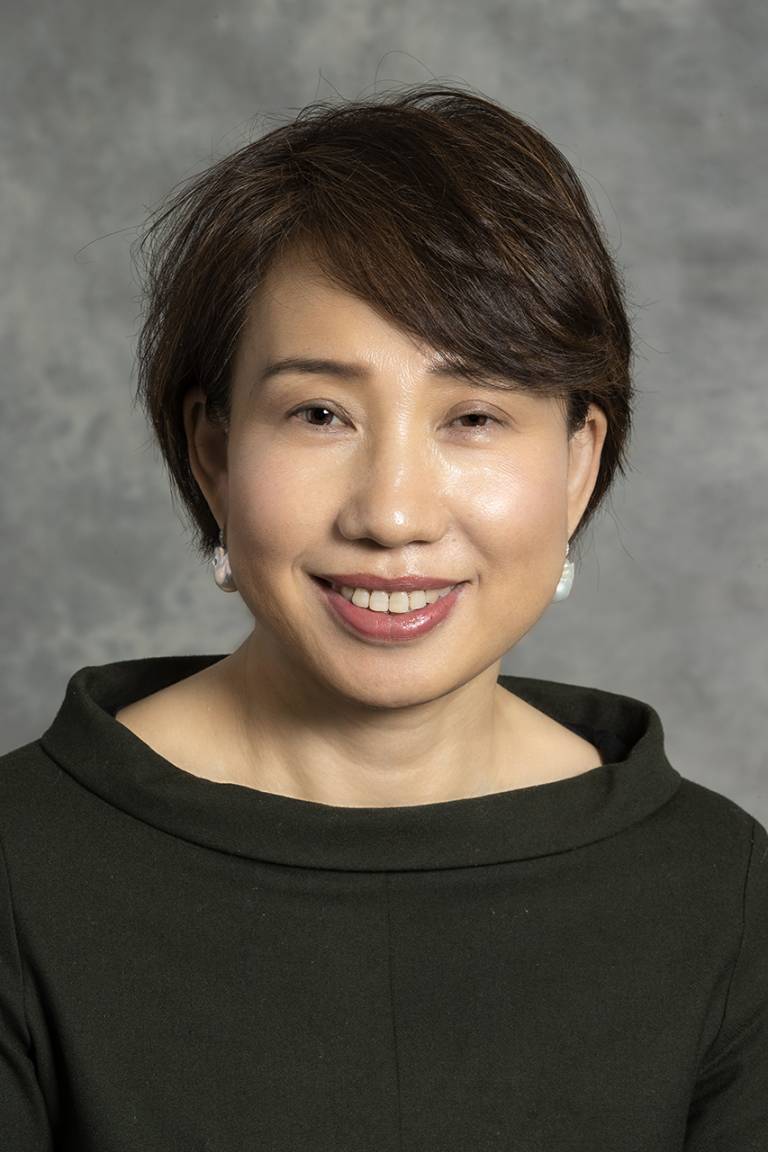INWED 2019: Focus on Prof Tao Cheng
27 June 2019
As part of this year’s INWED celebrations, CEGE has asked certain staff and students to tell us more about their experiences. Here, with questions taken from a previous UCL Staff Spotlight article, Prof Tao Cheng gives us an insight into her work and background.

What is your role and what does it involve?
I am a professor in Geoinformatics in UCL Civil, Environmental and Geomatic Engineering (CEGE). I’m actively involved in teaching, research, knowledge exchange and outreach activities. I am the Programme Director of Spatio-Temporal Analytics and Big Data Mining MSc, which aims to equip students with professional skills in big data analytics, in order to gain insights from large and complex datasets which are geo-tagged and/or time-stamped.
I have worked on four major grants since I joined UCL in 2006. These have involved smart transport with TfL, intelligent policing with the Metropolitan Police Service, and business intelligence with leading consumer companies. I founded SpaceTimeLab in 2012, and I am very pleased to see it become a world-leading Geocomputaion Centre.
What and where was your previous role?
I was a professor at Sun Yat-Sen University, Guangzhou, China. I worked on bidding for grants, teaching, and supervising PhD students.
What working achievement or initiative are you most proud of?
The collaboration with the Met Police on the Crime, Police and Citizenship Project, funded by EPSRC. Using spatio-temporal analytics, big data and network complexity theory, we have developed an integrated platform for intelligent policing in an operational context. The platform consists of three inter-connected parts essential for policing: network-based crime prediction, optimal patrol routing strategies, and performance evaluation. The tools are street network-based: this representation not only allows for greater accuracy, but is also easier to implement on the ground. The cutting-edge network-based algorithm pinpoints crime hotspots to within a street or part of a street. This product is able to help front line officers to effectively patrol high risk streets, deterring crimes more effectively. The network-based crime prediction has been used recently by the Met to guide daily patrols and police resource allocation, with preliminary results showing an impact in crime reduction. We are working with UCL Business to spinout the technology so that it can be adopted in police forces in the UK and worldwide.
I am also very pleased that I have been actively involved in UCL Athena SWAN activities, leading CEGE’s successful departmental Silver SWAN application in 2009.
What’s the best aspect about working at UCL?
We have the freedom of doing research, and working at our own pace (though sometimes that can be hectic). We have great student and staff talent coming from across the world, which leads to cutting-edge research. Being in London, close to governmental and industrial organisations, makes connections and impact happen. There are so many opportunities at UCL, and good work is recognised.
What are your future career aspirations?
New ideas always excite me, so I think I will continue cutting-edge research as my first priority. I always want my research to make a real difference to people’s lives, so I will push for its implementation in practice, with the hope to commercialise some of our research outcome, enabling wide adoption of the technology. Currently, collaboration with Chinese academics and industries is also a big part of my work, given my connections there.
What do you like to do in your spare time?
I go to the gym regularly (though it could be more frequently!). I like visiting museums and art galleries, and the National Gallery and Tate Modern are my favourites. I like gardens and flowers, and visit Kew Gardens every season. Recently I got an allotment so I grow vegetables at the weekend. I also enjoy musicals, theatres and movies a lot.
Links
- UCL Civil, Environmental and Geomatic Engineering
- Prof Tao Cheng’s CEGE profile
- Spatio-Temporal Analytics and Big Data Mining MSc
- SpaceTimeLab
- Sun Yat-Sen University (external site)
Image
- Credit: Mary Hinkley, UCL Digital Media
 Close
Close

